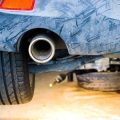Introduction to Heavy-Duty Trucks for Towing
When it comes to moving serious weight, heavy-duty trucks are the backbone of American transportation. Whether you’re towing a family RV for a summer road trip, hauling a horse trailer, or pulling equipment for work on rugged job sites, having the right truck is essential. The vast and diverse American landscape—from the steep grades of the Rockies to the open highways of Texas—demands vehicles built for power, durability, and reliability. Heavy-duty trucks are engineered to meet these challenges with robust frames, high-torque engines, and advanced towing technologies. This guide explores why these trucks are so crucial for handling large loads, ensuring safety and efficiency no matter what you’re hauling or where you’re headed.
Top Features to Look for in a Towing Truck
When it comes to choosing the best heavy-duty truck for towing, understanding which features truly matter can make all the difference. American truck enthusiasts prioritize not only raw power but also advanced technology and eco-friendly innovations. Below, we highlight the crucial specifications that should guide your decision.
Towing Capacity: The Backbone of Performance
Arguably the most important metric, towing capacity determines how much weight your truck can safely haul. Most heavy-duty trucks in the U.S. offer impressive numbers, but it’s vital to match your needs with the right class of truck—whether you’re hauling a camper, boat, or work equipment.
Torque: Power When You Need It Most
Torque is essential for pulling heavy loads, especially from a dead stop or when climbing steep grades. Diesel engines often lead the way here, offering high torque at lower RPMs for more efficient and smoother towing experiences.
Comparing Key Specs
| Truck Model | Towing Capacity (lbs) | Torque (lb-ft) | Fuel Efficiency (mpg) | Eco-Friendly Features |
|---|---|---|---|---|
| Ford F-350 Super Duty | 21,000 | 1,050 | 15 city / 20 hwy | Biodiesel compatibility, start-stop system |
| Chevrolet Silverado 3500HD | 20,000 | 910 | 14 city / 19 hwy | Diesel engine option, DEF system |
| Ram 3500 Heavy Duty | 23,000 | 1,075 | 13 city / 18 hwy | CNG-compatible models available |
Fuel Efficiency: Saving Green While Hauling Green
No one wants to spend more at the pump than necessary. Today’s top heavy-duty trucks combine brawn with brains—offering improved miles per gallon even under load. For those who tow long distances or value sustainability, fuel-efficient engines and hybrid technologies are becoming increasingly significant.
Sustainable Innovations: Driving Toward a Greener Future
The latest models incorporate eco-friendly solutions without compromising strength. Features like biodiesel compatibility, cylinder deactivation, and regenerative braking help reduce emissions and support cleaner driving practices. As green tech gains traction in the U.S., these options are no longer just “nice-to-haves”—they’re quickly becoming must-haves for forward-thinking drivers.

3. Best Heavy-Duty Trucks for Towing in 2025
When it comes to selecting the best heavy-duty trucks for towing in 2025, American drivers have a wealth of options that blend raw strength, innovative technology, and a growing commitment to sustainability. The U.S. market is dominated by trusted domestic brands renowned for their durability and performance, but there’s also an increasing emphasis on green energy solutions and eco-friendly engineering.
Ford F-Series Super Duty
The Ford F-250 and F-350 Super Duty models continue to set the benchmark for towing capability. With available Power Stroke® turbo diesel engines, these trucks can tow up to 37,000 pounds when properly equipped. Ford’s Pro Power Onboard system and advanced trailer assist features offer both convenience and peace of mind. In 2025, Ford is also taking steps toward sustainability with improved fuel efficiency and hybrid technology options, aligning with Americas push for greener transportation.
Chevrolet Silverado HD
The Chevrolet Silverado 2500HD and 3500HD are favored by many for their impressive Duramax® diesel engine and robust Allison® transmission. These trucks offer a maximum towing capacity near 36,000 pounds. Chevys advanced trailering technologies—including transparent trailer view—enhance safety and usability. For 2025, Chevrolet is rolling out more efficient powertrains and exploring renewable biofuel compatibility to support environmental goals without sacrificing performance.
Ram Heavy Duty
The Ram 2500 and 3500 trucks are beloved for their luxurious interiors as well as their beastly Cummins® Turbo Diesel engine, which delivers up to 1,075 lb-ft of torque and top-tier towing numbers over 37,000 pounds. Ram’s commitment to sustainability is seen through its lightweight frame construction and innovative emissions-reduction technologies, making them a responsible yet powerful choice for American truck owners.
Emerging Trends: Electric & Hybrid Heavy-Duty Trucks
Looking ahead to 2025, automakers are rapidly advancing electric and hybrid heavy-duty pickups. Ford has announced future electrified versions of its Super Duty line, while GM plans to introduce all-electric Silverado HD models. These next-generation trucks promise instant torque delivery for towing, reduced carbon footprints, and lower operating costs—an exciting development for eco-conscious drivers who refuse to compromise on power.
Comparing Performance & Sustainability
While traditional diesel-powered heavy-duty trucks remain the leaders in sheer towing muscle, the market shift toward hybrid and electric alternatives signals a new era of sustainable trucking. Each brand’s latest offerings balance high-capacity towing with cleaner energy use and lower emissions. When choosing your next heavy-duty truck for towing in America, consider not only horsepower and payload ratings but also the manufacturer’s dedication to environmental stewardship—a key factor in shaping the future of American roads.
4. Green Innovations in Heavy-Duty Towing
As the demand for eco-friendly transportation intensifies, the heavy-duty towing sector is embracing a wave of green innovations. American truck manufacturers are investing in cleaner diesel engines, hybrid drivetrains, and all-electric heavy-duty trucks to reduce emissions without compromising performance. These advancements are not just theoretical; they are being integrated into real-world towing applications across the United States.
Cleaner Diesel Engines
Modern diesel engines feature advanced after-treatment systems and exhaust filters that significantly cut down on nitrogen oxides (NOx) and particulate matter. Technologies like selective catalytic reduction (SCR) and diesel particulate filters (DPF) have become standard, helping many of the latest heavy-duty trucks meet stringent EPA standards. As a result, todays diesel-powered tow vehicles offer high torque and durability while maintaining a smaller carbon footprint.
Hybrid Powertrains
The hybrid revolution has reached America’s highways with heavy-duty trucks combining combustion engines with electric motors. These hybrid systems use regenerative braking and battery power to reduce fuel consumption during stop-and-go city towing or idling—common scenarios in urban fleet operations. The combination results in substantial fuel savings, quieter operation, and lower greenhouse gas emissions.
All-Electric Heavy-Duty Trucks
Electric heavy-duty trucks are no longer just prototypes; several models are now commercially available, offering impressive towing capacities suitable for local deliveries and specialized fleet work. With zero tailpipe emissions and fewer moving parts, these vehicles provide both environmental benefits and lower maintenance costs over time.
Comparing Green Truck Technologies
| Technology | Main Benefit | Towing Suitability |
|---|---|---|
| Clean Diesel | Reduced emissions, proven reliability | Long-haul & heavy loads |
| Hybrid | Fuel efficiency, reduced urban emissions | Urban & mixed-use towing |
| All-Electric | Zero tailpipe emissions, low maintenance | Short-haul & fleet applications |
The Environmental Payoff
Choosing a greener heavy-duty tow truck means more than just saving on fuel; it’s about supporting a sustainable future. Operators who invest in these advanced technologies not only benefit from lower operating costs but also contribute to cleaner air for their communities and compliance with evolving environmental regulations. As technology continues to evolve, American towing fleets have more opportunities than ever to balance power with planet-friendly practices.
5. Choosing the Right Truck for Your Towing Needs
Finding the best heavy-duty truck for towing is more than just picking the most powerful model on the lot. For American truck owners, choosing a rig that fits your lifestyle and hauling demands ensures both safety and efficiency on the road. Here’s a step-by-step guide to help you assess your personal towing needs with sustainability and practicality in mind.
Assess Your Payload and Trailer Requirements
Start by calculating your typical payload—this includes not only the weight of your trailer but also cargo, equipment, and passengers. Check the Gross Combined Weight Rating (GCWR) and make sure your chosen truck can handle your heaviest anticipated load. Overloading can reduce fuel efficiency and increase wear on components, impacting both performance and long-term sustainability.
Understand Your Regular Routes
The geography of your regular routes matters. Do you frequently navigate steep mountain passes or tow long distances across highways? Trucks equipped with robust cooling systems, engine braking features, and advanced transmission options perform better under stress and are ideal for challenging American terrains. If you mostly drive urban or suburban routes, consider a heavy-duty truck with adaptive cruise control and tight turning radius for easier maneuverability.
Factor In Long-Term Maintenance
Heavy-duty trucks are investments meant to last years—so think ahead. Research brands with strong reputations for reliability, affordable parts, and accessible service networks nationwide. Opt for models with extended warranties and built-in diagnostic systems to catch issues early, reducing downtime and supporting a lower environmental impact through efficient repairs.
Practical Tips for Sustainable Truck Ownership
- Go Green Where Possible: Look for trucks offering alternative fuel options or improved fuel economy. Some American manufacturers now provide hybrid or clean diesel models that reduce emissions without sacrificing power.
- Maintain Tire Health: Proper tire inflation improves towing stability and lowers fuel consumption—a win-win for safety and sustainability.
- Plan Ahead: Use route planning tools to avoid traffic congestion and idling, which saves time, money, and reduces your carbon footprint.
Selecting the right heavy-duty truck is about matching your real-world needs with responsible choices that keep you—and the planet—moving forward. By considering payload, typical routes, and maintenance from an eco-conscious perspective, you’ll find a reliable partner for every adventure on America’s roads.
6. Staying Safe and Sustainable While Towing
Responsible Towing: Best Practices
When it comes to heavy-duty truck towing, safety and sustainability go hand in hand. Responsible towing starts with knowing your truck’s limits—always check the manufacturer’s guidelines for towing capacity and weight distribution. Make sure your hitch and connections are secure before every trip. Regularly inspect your brakes, tires, and trailer lights to avoid unexpected issues on the road.
Maintenance Tips for Reliable Performance
Routine maintenance not only ensures a safer towing experience but also extends the life of your truck. Change oil and filters at recommended intervals, keep your tires properly inflated, and monitor fluid levels closely. Don’t forget to service your transmission and cooling systems—towing puts extra strain on these components. By staying proactive, you’ll minimize breakdowns and improve fuel efficiency over time.
Eco-Conscious Driving Habits
Driving green is easier than you think—even with a heavy-duty rig. Practice smooth acceleration and braking to reduce fuel consumption, and use cruise control whenever possible on highways. Avoid excessive idling; modern engines warm up quickly and long idle times waste fuel. Plan routes in advance to minimize traffic delays and unnecessary detours, which both contribute to a lower carbon footprint.
Lightening Your Load
Reducing weight is another way to boost efficiency while towing. Remove unnecessary gear from both your truck bed and trailer. Use aerodynamic covers or tonneau covers to cut down on wind resistance—every bit helps when it comes to conserving fuel.
Resources for Lowering Your Carbon Footprint
If you’re looking to make a real impact, consider using renewable diesel or biodiesel fuels where available. Many U.S. states offer incentives for eco-friendly upgrades such as low-rolling-resistance tires or advanced exhaust after-treatment systems. Check out organizations like the EPA’s SmartWay program for tips on greening your towing routine and accessing rebates for clean technology.
Drive Smart, Tow Responsibly
The best heavy-duty trucks for towing aren’t just about brute strength—they’re about making smart choices that protect our roads and planet. By following these safety checks, embracing regular maintenance, adopting eco-conscious habits, and exploring green resources, you’ll enjoy peace of mind while reducing your environmental impact mile after mile.


